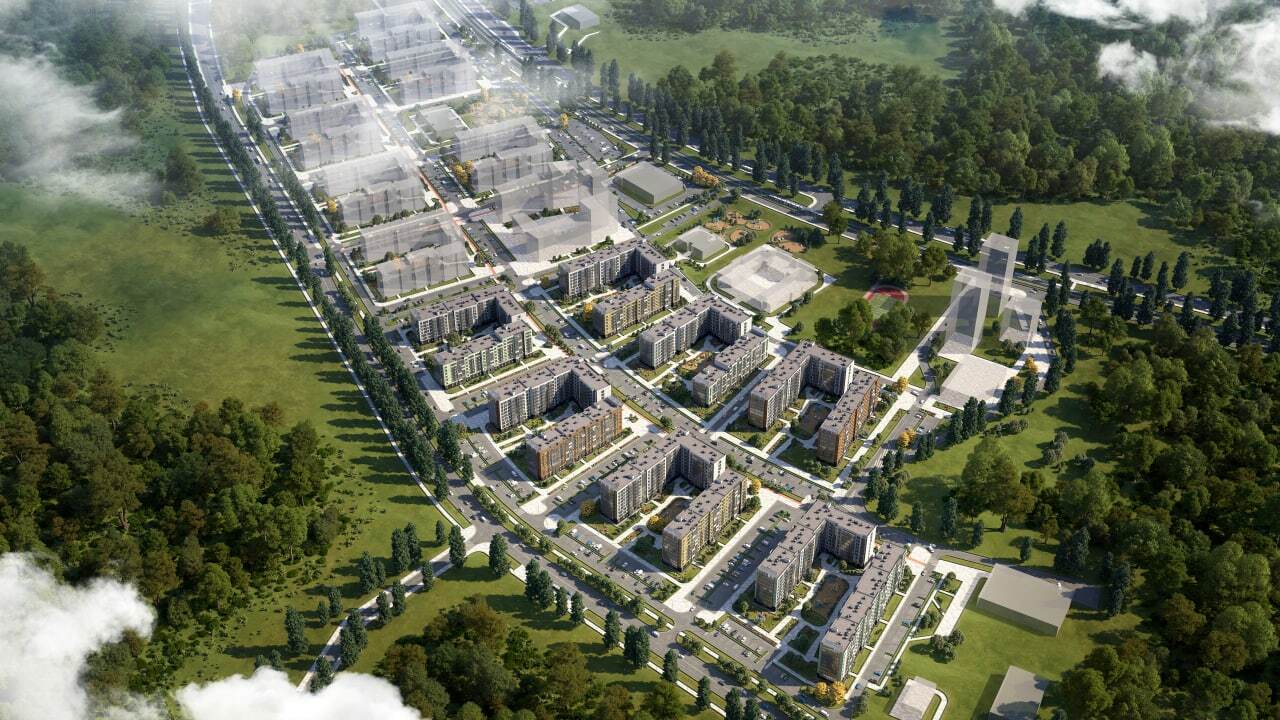Cycle: Evaluation of Visualization Projects
3D: Gork Studio
Client: MIC
Project: Flower meadows
Location: Moscow
The initial contact with the client in most cases happens in the format: there is a project, we need a certain number of images, how much will it cost?
This information is insufficient to provide an estimate, even a preliminary one. Initially, it's necessary to understand two global inputs:
For example, you might quote a price for a perspective, and later it turns out that it's a winter night scene from a bird's-eye view over a vast area. The price for such a perspective, of course, will be higher than a summer close-up.
To avoid such situations, our procedure involves requesting the entire archive of materials, taking a working day to study them, and asking additional questions if they arise.
The standard brief for exterior statics looks as follows:
10. Deadlines
11. NDA terms
In the dialogue process, the project manager's task is to assist the client in gathering enough materials for assessment and, if some components are impossible to obtain, to mark their absence and propose our solution.
It's also important to note that it's not advisable to send "everything you have." Documents often come from different stages of the project, thereby creating contradictions and additional questions.
Content
3D: Gork Studio
Client: MIC
Project: Flower meadows
Location: Moscow
The initial contact with the client in most cases happens in the format: there is a project, we need a certain number of images, how much will it cost?
This information is insufficient to provide an estimate, even a preliminary one. Initially, it's necessary to understand two global inputs:
- What is required in terms of modeling
- What is required in terms of visualization.
For example, you might quote a price for a perspective, and later it turns out that it's a winter night scene from a bird's-eye view over a vast area. The price for such a perspective, of course, will be higher than a summer close-up.
To avoid such situations, our procedure involves requesting the entire archive of materials, taking a working day to study them, and asking additional questions if they arise.
The standard brief for exterior statics looks as follows:
- Working title of the project
- Project typology
- Link to the location
- Number and nature of perspectives (bird's-eye, close-ups, interiors)
- Time of day and season for each perspective
- References
- Format for the final material transfer
- Drawings:
- Site plan
- General plan
- Material schedule
- Composition and location of small architectural forms
- Dendroplan
- Facades
- Sections
- Floor plans
10. Deadlines
11. NDA terms
In the dialogue process, the project manager's task is to assist the client in gathering enough materials for assessment and, if some components are impossible to obtain, to mark their absence and propose our solution.
It's also important to note that it's not advisable to send "everything you have." Documents often come from different stages of the project, thereby creating contradictions and additional questions.
Content


